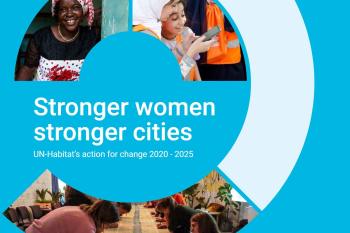
Read More
Gender Strategy for Land-at-Scale Uganda
Women’s Land Rights (WLRs) are fundamental human rights, foundational to gender equality and women’s dignity and instrumental in improving food security, effective climate action, poverty eradicati

2014 is widely seen as marking a watershed for Afghanistan with its legacy of thirty-five years of conflict and one of the world's largest populations in protracted displacement. International military forces are being withdrawn and the country is 'in transition' - politically, economically and in terms of security and its international standing. The high voter turnout in the recent presidential elections has been greeted as an encouraging sign for Afghanistan's future but there is still considerable uncertainty about the capacity of the country to address the challenges of return, integration and reintegration, protection, access to rights, and continuing displacement. The issue also includes a mini-feature on Statelessness, marking the 60th anniversary of the adoption of the 1954 Convention relating to the Status of Stateless Persons and in preparation for a Global Forum on Statelessness to be held in the Netherlands in September. Related documents

Women’s Land Rights (WLRs) are fundamental human rights, foundational to gender equality and women’s dignity and instrumental in improving food security, effective climate action, poverty eradicati

This publication presents a summary of UN-Habitat’s gender equality impact over the past five years, in line with the Beijing reporting cycle.

GLTN’s institutional commitment to gender equality and secure land rights for women and girls has been at the core of its work since inception in 2006.